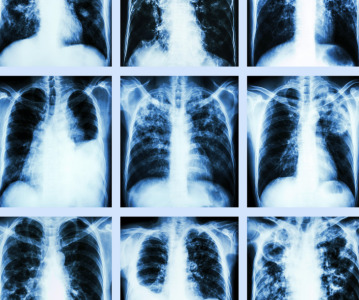Regeneron and Sanofi Announce Positive Results from Phase IIb Study of Dupilumab

"These clinical data, coupled with our phase IIa results in asthma last year, support the growing scientific evidence that the IL-4/IL-13 pathway may be a fundamental driver in allergic diseases," said
"Atopic dermatitis is known to have a profoundly negative effect on quality of life and people with more severe forms of this disease have limited therapeutic choices," said
Related News
-
News Eli Lilly’s Alzheimer’s drug receives approval from US FDA
After facing several hurdles on its path to approval last year, Eli Lilly’s donanemab treatment for early Alzheimer’s, brand name Kisunla, received US FDA approval this past week. It is the second therapy for slowing the progression of Alzh... -
News This week in GLP-1 drug headlines: Manufacturing investment and new market launches
As drugmakers race to put their own GLP-1 drug products forward as the next biggest thing in weight-loss, current products are making numerous headlines this week with a number of new developments in their commercialisation and approval. Discover the l... -
News Women in Pharma: Regulating equity across regional borders
In our monthly series focusing on women in the pharmaceutical industry, we interview leading experts in the pharmaceutical supply and value chain to discuss the importance of gender diversity in healthcare, the workplace, and beyond. -
News Viral marketing for B2B pharma businesses: a CPHI Online case study
Discover how a Chinese chemical manufacturing company went viral on TikTok, and what their viral success means for the future of B2B digital marketing for the wider pharmaceutical industry and supply chain. -
News New Aurigene biologics facility opens in Hyderabad, India
Aurigene Pharmaceutical Services Ltd. have opened a biologics facility in Hyderabad, India in a biocluster known as Genome Valley. -
News Novo Nordisk launches 'Power of Wegovy' national campaign
Danish drugmaker Novo Nordisk have launched a new national campaign – The Power of Wegovy – that aims to educate those living with obesity on their blockbuster drug Wegovy throughout the United States. -
News Women in Pharma Anniversary: Celebrating Our Heroines of Pharma
Our Women in Pharma interview series is approaching its 1-year anniversary this month, and to celebrate, we are highlighting the Heroines of Pharma that our very own Women in Pharma admire. -
News Sanofi gains rare disease therapy in acquisition of Inhibrx for US$1.7 billion
Sanofi completed the acquisition of the clinical-stage biotech company Inhibrx in late May 2024 after settling on a US$1.7 billion buyout. The acquisition brings with it a rare disease therapy to bollster Sanofi's pipeline.
Position your company at the heart of the global Pharma industry with a CPHI Online membership
-
Your products and solutions visible to thousands of visitors within the largest Pharma marketplace
-
Generate high-quality, engaged leads for your business, all year round
-
Promote your business as the industry’s thought-leader by hosting your reports, brochures and videos within your profile
-
Your company’s profile boosted at all participating CPHI events
-
An easy-to-use platform with a detailed dashboard showing your leads and performance
.png)
.png)
.png)

.png)
.png)
.png)
